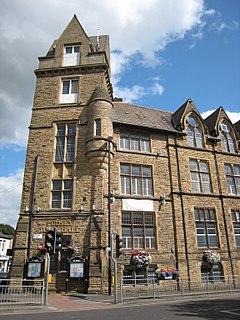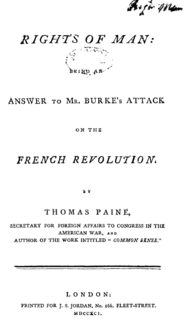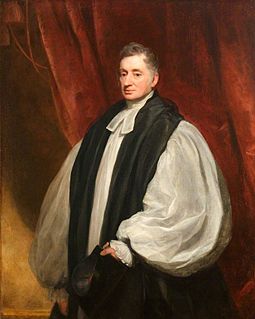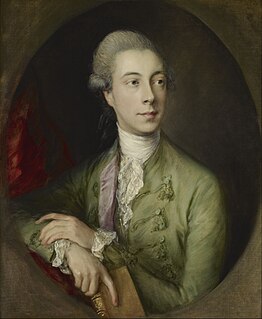Life
He was born at Pudsey, near Leeds, on 22 August 1745, the younger brother of John Hey and William Hey. He became a fellow of Magdalene College, Cambridge, graduating Bachelor of Arts (BA) in 1768. In 1771 he took the degree of Cambridge Master of Arts (MA Cantab) as fellow of Sidney Sussex College, and in 1779 Legum Doctor (LLD) per lit. reg. In 1771 he was called to the bar at the Middle Temple. He was admitted to Doctors' Commons, but obtaining no practice retired from the bar. [1] [2]

Pudsey is a market town in West Yorkshire, England. Once independent, it was incorporated into the City of Leeds metropolitan borough in 1974. It is located midway between Bradford city centre and Leeds city centre. Historically in the West Riding of Yorkshire, it has a population of 22,408. It also lends its name and sits in the local Leeds City Council ward of Pudsey and Pudsey parliamentary constituency.

Leeds is a city in West Yorkshire, England.
John Hey (1734–1815) was an English cleric, the first Norrisian Professor of Theology at Cambridge.
Hey was fellow and tutor of Magdalene College from 1782 till 1796, and was also elected one of the esquire bedells. He died on 7 December 1835, at Hertingfordbury, near Hertford, at age 90. [1]

Hertingfordbury is a small village and civil parish in Hertfordshire, England, close to the county town of Hertford. The population of the civil parish as of the 2011 census is 630. It was mentioned in the Domesday Book.
Works
In 1776 Hey published Observations on the Nature of Civil Liberty and the Principles of Government. His major work was the Dissertation on the Pernicious Effects of Gaming, awarded a prize of fifty guineas from the University of Cambridge. The first edition appeared at Cambridge in 1783, and the third in 1812. Hey in 1784 won a second prize, offered by the same anonymous donor, by his Dissertation on Duelling, which also reached a third edition in 1812. His Dissertation on Suicide gained him a third prize of 50 guineas. It was first printed in 1785, again in 1812, when the three dissertations were published together.
In 1792, Hey's Happiness and Rights appeared at York appeared in reply to the Rights of Man by Tom Paine. He also wrote a tragedy in five acts The Captive Monarch (1794) which was published in 1794 (with a scenario based on the fate of Louis XVI), [3] and in 1796 Edington, a novel, in two volumes. His last work was Some Principles of Civilisation, with detached thoughts on the Promotion of Christianity in British India, Cambridge, 1815. [1]

York is a historic walled city in North Yorkshire, England. At the confluence of the River Ouse and Foss, it is the traditional county town of the historic county of Yorkshire. York Minster and a variety of cultural and sporting activities make it a popular tourist destination.

Rights of Man (1791), a book by Thomas Paine, including 31 articles, posits that popular political revolution is permissible when a government does not safeguard the natural rights of its people. Using these points as a base it defends the French Revolution against Edmund Burke's attack in Reflections on the Revolution in France (1790).
Hey contributed papers to Philosophical Transactions and other magazines. He assisted in editing a pamphlet on an Egyptian mummy, with anatomical and other details. [1]
This page is based on this
Wikipedia article Text is available under the
CC BY-SA 4.0 license; additional terms may apply.
Images, videos and audio are available under their respective licenses.
George Atwood was an English mathematician who invented a machine for illustrating the effects of Newton's first law of motion. He was also a renowned chess player whose skill for recording many games of his own and of other players, including François-André Danican Philidor, the leading master of his time, left a valuable historical record for future generations.

Samuel Vince was an English clergyman, mathematician and astronomer at the University of Cambridge.
Philip Stanhope Dodd (1775–1852) was a Church of England clergyman.

Philip Nicholas Shuttleworth was an English churchman and academic, Warden of New College, Oxford, from 1822 and Bishop of Chichester.

Richard Paul Jodrell was a classical scholar and playwright.
John Gay (1699–1745), a cousin of the poet John Gay, was an English philosopher, biblical scholar and Church of England clergyman. The greatest happiness principle, Gay supposed, represented a middle ground between the egoism of Hobbes and Hutcheson's moral sense theory.
Thomas Kipling was a British churchman and academic.
Thomas Parkinson was an English clergyman.
Thomas Rutherforth (1712–1771) was an English churchman and academic, Regius Professor of Divinity at Cambridge from 1745, and Archdeacon of Essex from 1752.
James Plumptre (1771–1832) was an English clergyman and dramatist.
Pupils of Westminster School and Charterhouse School played a cricket match in London on 5 August 1794 which was recorded in the earliest known scorecard of a schools match.
Sir George Leman Tuthill (1772–1835) was an English physician.

Robert Lynam (1796–1845) was an English cleric, schoolteacher, writer and editor.

Sir George Smith Gibbes M.D. (1771–1851) was an English physician and writer.
George Heath D.D. was a Canon of Windsor from 1800 to 1822 and Head Master of Eton College from 1792 to 1802.
Malachy Hitchins (1741–1809) was an English astronomer and cleric.

Edward Pearson (1756–1811) was an English academic and theologian, Master of Sidney Sussex College, Cambridge from 1808.
John Overton (1763–1838) was an English clergyman, known for his defence of evangelicals at the start of the 19th century.














